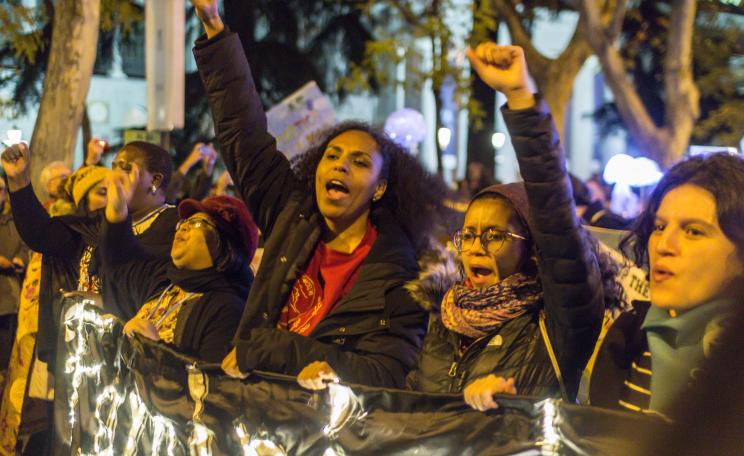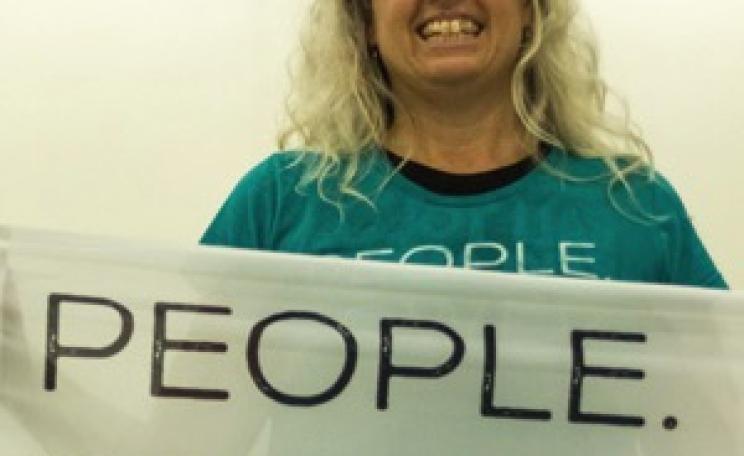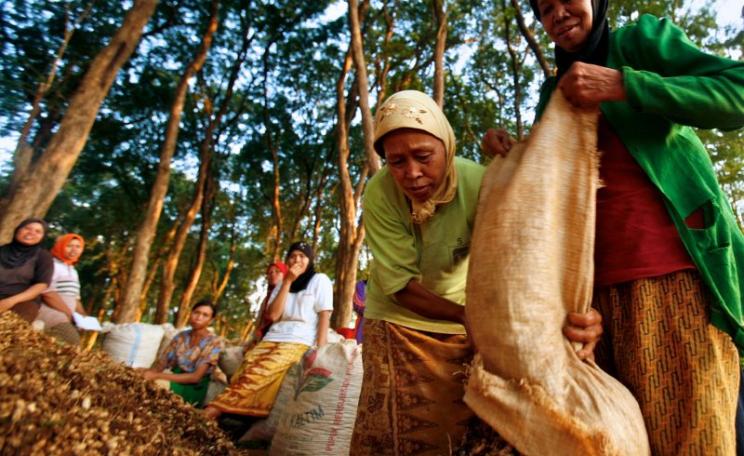Around the world, activists and communities are raising their voices to stop environmental devastation and promote the possibility of another world, where nature is respected and people can live in dignity.
Around the world, activists and communities are raising their voices to stop environmental devastation and promote the possibility of another world, where nature is respected and people can live in dignity.
These defenders of the environment often face terrible consequences for their actions, suffering acts of violence against them and violations of their rights.
In the period between 1 November 2011 and 31 October 2013, Friends of the Earth International (FoEI) recorded more than 100 incidents of violence against environmental rights defenders and violations of their rights in 27 countries around the world.
Many instances of violence and rights violations against environmental defenders have also been documented by United Nations (UN) mechanisms and non-governmental organisations (NGOs).
Corporate power creates the context for violence
Rights violations against environmental defenders recorded by FoEI are not isolated incidents - they are a global trend resulting from an international context of corporate domination.
As long as powerful economic interests create disputes with local communities over control of territories and natural resources, situations of violence and rights violations against defenders of nature and human rights will continue.
The neoliberal extractive model, which upholds corporate interests over the rights of people and nature, is part of the current context in which defenders work and which generates the conditions for acts of violence.
Conflicts over territory and natural resources lead to violations of human rights and the rights of nature, as well as rights violations against environmental defenders.
A culture of impunity and collusion
Corporate social responsibility strategies have failed to stop human rights violations and environmental destruction and instead have been used to cover up corporate abuses of communities, the environment, and of environmental defenders.
Voluntary mechanisms, like the Global Compact and Ruggie's UN Guiding Principles on Business and Human Rights, are insufficient - to say the least - to protect the rights of nature and people, and they have not reduced attacks on defenders who question corporate abuse.
Meanwhile militarisation and counter-terrorism policies have created police states that punish instead of protect human rights defenders.
At a time when radical action is required to ensure the future of our planet and reverse growing inequality, States are defending corporate interests by limiting the spaces for action by civil society. Environmental defenders are forced to function in a context of physical and psychological insecurity.
This insecurity is evidenced not only by the threats and attacks against the moral and physical integrity of defenders and their families, but also by institutional practices of criminalisation of human rights defenders and an architecture of impunity and collusion between State actors and corporate actors in defence of private interests.
Around the world, activists and communities are raising their voices to stop environmental devastation and promote the possibility of another world, where nature is respected and people can live in dignity.
States must meet their obligations
FoEI therefore calls on States to guarantee the full enjoyment of environmental and human rights, including the right to defend rights.
States' obligations to guarantee human rights entails first an end to state-sponsored institutional violence that stems from the extractive model of development that is based on corporate profit and perpetuating inequality.
They must act in compliance with international environmental and human rights law and stop violence against environmental defenders perpetrated by State actors - and fulfil their duty to protect defenders from violence perpetrated by non-State actors.
Finally, States must hold all perpetrators of violence and rights violations accountable and combat impunity by ensuring fair and prompt investigations of human rights abuses that lead to justice and redress for those whose rights have been violated.
It is also crucial that multilateral institutions maintain their independence from corporate interests and fulfil their mission of protecting those vulnerable to rights violations.
Protection strategies
Ultimately, environmental conflicts and institutional violence will continue as long as corporate profits are privileged over human rights and as long as resource extraction is privileged over the rights of nature.
FOEI is therefore challenging the corporate-led neoliberal production and consumption model, and fostering an enabling environment for communities and nations to exercise their self-determination and pursue sustainable livelihoods.
We are also responding to violence against environmental defenders by mobilising international solidarity and resources to protect defenders at risk. FoEI's Radio Mundo Real documents testimonies and experiences to disseminate information and analysis globally.
In partnership with allies from the broader movement for human rights and environmental justice, FoEI has been building capacity among local communities and organisations as well as supporting legal strategies to protect environmental defenders.
Protection strategies that take into account risks and resources are important - as are strategies to tackle violence at its source: the power that the perpetrators of violence hold and the environmental injustices that lead to confrontations between power-holders and human rights defenders.
By recognising environmental activism in all its expressions as legitimate defence of human rights and the rights of nature, we can contribute to the struggles of defenders and to keeping them safe.
International Law is on our side
The right to defend human rights (including environmental rights) is affirmed in the Declaration on Human Rights Defenders. Environmental rights are also enshrined in various international treaties and agreements that refer back to the Universal Declaration of Human Rights signed in 1948.
In 1990, the UN General Assembly passed a resolution recognising that "all individuals are entitled to live in an environment adequate for their health and well-being."
An important advance in recognition of the risks faced by environmental defenders is the work of the UN Special Rapporteur on the situation of human rights defenders.
The Rapporteur has documented complaints regarding violence against defenders working on land and environmental issues and has explored the relationship between large-scale development projects and the activities of human rights defenders.
Urgent action is needed to stop the sources of violence
The report published today, We defend the environment, we defend human rights, presents a snapshot of FoEI's efforts over a two-year period to respond to and disseminate testimonies and information about attacks on environmental defenders, contextualising these attacks within current global economic and political trends.
Although it is an incomplete picture of the risks that environmental defenders face, it is an alarming picture that calls for urgent action to stop the sources of violence - institutional violence against communities and nature, and violence against the defenders of human rights and the rights of nature.
Stronger international campaigning to address global trends and link the sources of power to the violations that are committed in territories is needed in order to transform the system and achieve social and environmental justice.
Recognising that system change is a long-term endeavour, environmental defenders must strengthen efforts to protect themselves and each other in the face of attacks.
A tighter web of protection based on international solidarity is also required to keep environmental defenders safe.
The Report: We defend the environment, we defend human rights is published by Friends of the Earth International. It will be officially released on June 26, during the 26th Session of the UN Human Rights Council (June 10-27 2014).







